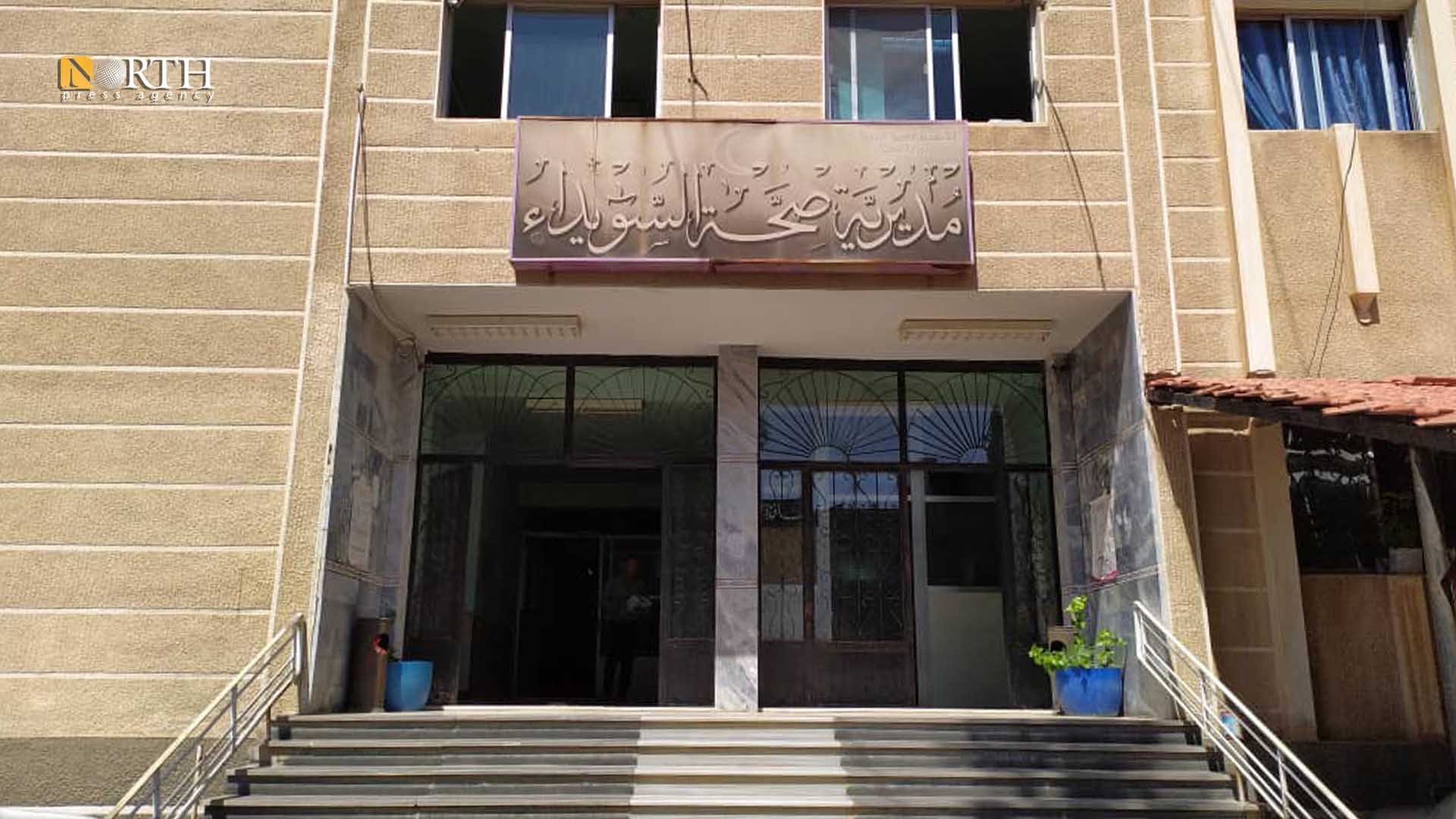SUWAYDA, Syria (North Press) – Malfunctions in medical devices for dialysis in Suwayda hospitals, south of Syria, cause a deterioration in the condition of the patients and high costs for those who have to go to Damascus, due to the unavailability of a staff specialized in maintaining these devices for more than two years.
Medical sources in Suwayda say, migration, leaving jobs to flee the compulsory military service and the neglect of Ministry of Health are the main reasons for the absence of specialists in maintaining the medical devices.
Extravagant bill
Ismail al-Mutanabi, a pseudonym for a kidney patient in Suwayda, said that last week, his children had to take him to Damascus, as the devices in Suwayda hospitals became out of service.
Al-Mutanabai told North Press that he had to borrow money to cover the costs of dialysis in the private Surgical Kidney Hospital in Damascus in addition to the prices of medications and transportation.
He has been suffering severe kidney failure for a year, which necessitated a weekly dialysis in the kidney department in Zeid al-Shariti Public Hospital in Suwayda.
However, this time he paid 350,000 Syrian pounds (SYP) for a five-hours session, 25,000 SYP for medications and 50,000 SYP for transportation which has risen the bill of one session to more than 400,000 SYP, according to him.
A medical source, who preferred not to be named, said that the main problem is the lack of an engineer specialized in maintaining the medical devices, “the ineffectiveness of the devices cause convulsion cases and syncope for some patients during and after the sessions.”
“The filters, cartridges and solutions attached to the dialysis machine inside the public hospital are not at required level, in addition to the section’s small space and the need for maintaining the electrical works,” the source added.
Doctors’ appeals
Omar Abdi, a pseudonym for a doctor working in the kidney section, said that the hospital provides the service of dialysis for more than 115 patients periodically at a rate of two or three sessions per patient per week.
“The poor performance of the private medical devices of dialysis prompted the doctors and the kidney section specialists to launch distress calls to the Health Directorate to secure urgent medical equipment and devices for the section,” the doctor added.
“The section includes 17 dialysis devices, of which only four are actually operating due to repeated malfunctions caused by daily usage,” he noted.
A medical official in the Health Directorate revealed that the maintenance works were carried out under a ministerial central maintenance contract with the maintenance company, “but it has stopped for two years, and currently there is no contract for the maintenance of devices.”
The management of the public hospital assigned the former head of nursing to maintaining works after the dismissal of specialized engineers because they did not join the governmental forces’ ranks and the compulsory military service while others migrated, according to the source.
Central contracts
The medical official added that about 100 letters were sent to the Ministry of Health to appoint engineers to maintain the devices, “but we have not received a response yet.”
He pointed out that the maintenance-related contracts “are central and linked to the Ministry of Health, and the Suwayda Health Directorate is not allowed to conclude local contracts.”
The annual allocation of the maintenance for the Suwayda Health Directorate amounts to only 22 million SYP, “which is not sufficient to purchase analgesics for 10 days for the hospitals of Suwayda, Salkhad, Shahba and Sally, in the eastern country side of Suwayda.
As for the registration of deaths, the governmental official said, “it is a normal condition for kidney failure patients especially during cold, fever, influenza and the spread of coronavirus pandemic.”
He stated that these patients are considered at high risk of infection, and the reason cannot be attributed to dialysis sessions only, despite their importance.

